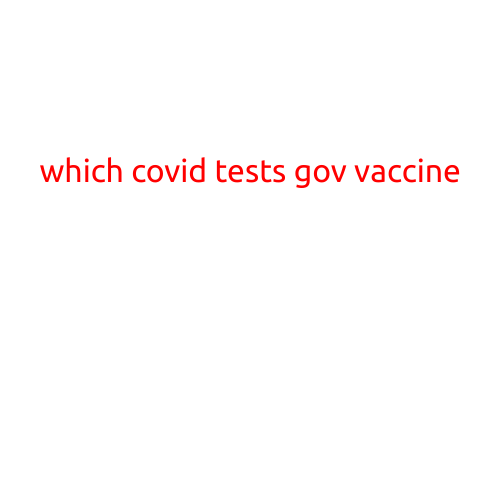
Which COVID-19 Tests: A Guide to GVocab and Everything You Need to Know
The COVID-19 pandemic has led to the development of various tests to detect the virus. With so many options available, it can be overwhelming to understand the differences between them. In this article, we’ll break down the types of COVID-19 tests, their characteristics, and what they can and can’t do.
Types of COVID-19 Tests
- Rapid Antigen Tests: These tests detect the presence of COVID-19 antigens, which are proteins found on the surface of the virus. Rapid antigen tests are:
- Quick: Results are available within 15-30 minutes
- Simple: Only a nasal swab is required
- Affordable: Generally cheaper than PCR tests
- Limited sensitivity: May produce false negatives if the patient is not heavily infected
- Polymerase Chain Reaction (PCR) Tests: These tests detect the genetic material of the virus, specifically the RNA. PCR tests are:
- More sensitive: Can detect low levels of virus in the body
- Highly accurate: Produce fewer false positives and negatives
- Time-consuming: Results may take several hours or even days
- Require specialized equipment and trained personnel
- Reverse Transcription Polymerase Chain Reaction (RT-PCR) Tests: These tests combine the principles of PCR and reverse transcription. RT-PCR tests are:
- Highly sensitive and specific
- Widely used in clinical settings
- Require specialized equipment and trained personnel
- Reverse Transcription Loop-Mediated Isothermal Amplification (RT-LAMP) Tests: These tests detect the genetic material of the virus using a one-step reaction. RT-LAMP tests are:
- Rapid: Results are available within 30-60 minutes
- Simple: Only a nasal swab is required
- Affordable: Generally cheaper than PCR tests
- Limited sensitivity: May produce false negatives if the patient is not heavily infected
- Antibody Tests: These tests detect the presence of antibodies produced by the body in response to COVID-19 infection. Antibody tests are:
- Used to detect past infection
- Not suitable for diagnosing active infection
- May produce false positives if the patient has been vaccinated
When to Choose Each Test
- Rapid Antigen Tests: Use these tests when:
- You’re in a setting where rapid results are important (e.g., schools, workplaces)
- You don’t have access to a healthcare provider or specialized equipment
- You’re willing to accept the risk of false negatives
- PCR Tests: Use these tests when:
- You’re experiencing symptoms and need a definitive diagnosis
- You’re in a high-risk group (e.g., healthcare workers, older adults)
- You don’t have access to rapid antigen tests
- RT-PCR and RT-LAMP Tests: Use these tests when:
- You need a highly sensitive and specific diagnosis
- You don’t have access to rapid antigen tests
- You’re in a setting where timely results are critical
- Antibody Tests: Use these tests when:
- You’re unsure if you’ve had COVID-19 in the past
- You’re trying to determine if you’ve developed immunity
Conclusion
Choosing the right COVID-19 test depends on your specific situation, needs, and resources. Understanding the characteristics and limitations of each test can help you make an informed decision. Remember to always consult with a healthcare provider if you’re unsure which test is best for you or if you’re experiencing symptoms. Stay safe and healthy!





